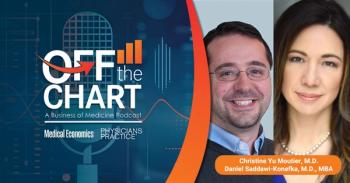
Learning from the reminder that physicians are patients too
It is good for doctors to be patients and to wrestle with the things our patients do.
Last weekend, I injured my back.
What started as a dull ache Saturday morning blossomed into moderately severe pain that kept me up through the night. I modified my activities on Sunday and used ice, NSAIDs, and tried to rest and stretch.
When I awoke Monday morning, I felt better briefly before the cycle of pain started all over again. I loaded up on more NSAIDs and packed an ice pack and a heating pad in my bag before heading to work. Mid-way through my morning I realized that I was in too much discomfort to give my patients the attention they deserve, and I went home early.
I’m so fortunate that my episode of back pain is an anomaly as I know many people live with daily pain and bravely function through work and home activities. For me, this was the first episode of back pain I’ve had in the last two decades, and I was amazed by how much it stopped me. When we have a sickness, injury or emergency, it tends to crystallize what is most important and order our priorities quickly – even those we have difficulty juggling on a daily basis.
The pain literally prevented me from doing my normal activities, and I spent much of Monday afternoon in the one position that caused the least pain alternating between staring at the ceiling and watching The Good Wife. I wasn’t even able to work on patient charts because it hurt too much to sit. Guess what? Life went on without me. My patients were able to reschedule their appointments with me or one of my partners. My husband gamely covered the evening’s parent-teacher conferences and fed the kids. I didn’t get anything on my to-do list done, and it was okay.
Medicine teaches you through many small experiences to ignore your own physical limitations – whether that is an illness or the basic biological needs for sleep and food. This gradual conditioning can give you the false conviction that you are indispensable and that you cannot afford to take time off for sickness yourself. This is false, as any physician learns who has had a baby, had surgery, ruptured their Achilles tendon, or developed a severe case of influenza. During these episodes, we are reminded how fragile we are and how easily the things that seem essential can fall away.
It is good for doctors to be patients and to wrestle with the things our patients do – pain, limitations, frustration, loss, and perspective. When these moments catch us, as they inevitably do, we can fight against our physical vulnerability – often making things worse – or we can accept what our own patients already realize. We have limits, and we are not in control. While humbling, these experiences can teach us important lessons.
Jennifer Frank, MD is a family physician and chief medical officer in northeastern Wisconsin. She continues to find medicine to be the most rewarding profession imaginable, second only to motherhood. She's married to a fellow physician and has four children. Her family reminds her of what is most important and inspires her study and pursuit of work-life balance.
Newsletter
Optimize your practice with the Physicians Practice newsletter, offering management pearls, leadership tips, and business strategies tailored for practice administrators and physicians of any specialty.








